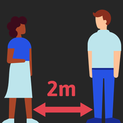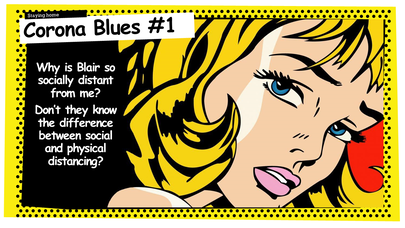 'Physical distancing' is what it says: a specific physical distance between you and anyone else (2m). 'Social distancing' can mean being physically close but emotionally removed. But mostly, people don't want to be 'socially distanced'. Socially distanced is a tough place to be. However, we can be physically distanced and still socially connected, especially in a world with modern technology. In these difficult times, while we should remain physically distanced, we must also reach out and be socially connected. In South Africa, the lockdown rules are stringent. (We will soon post some ideas about how to beat the COVID-Lockdown blues). In the meantime, let's keep socially connected in meaningful ways, and physically separated to minimise the harms of COVID19. Ways to be socially connected:
*only put pre-packaged food in the box. Make sure your hands are clean, and they should wipe down items once they've bought them before they go into the box.
0 Comments
Leave a Reply. |
Archives
June 2024
Categories
All
Categories
All
|


 RSS Feed
RSS Feed